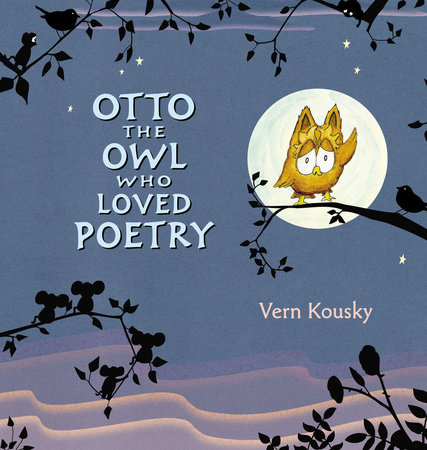10 Points on the Power of Poetry
by Vern Kousky
We all begin with a love of poetry. As we grow up, however, that love can fade. Language becomes practical rather than fanciful, and we may start to think of words not as amusing sounds we make but rather as tools we can put to use. While it’s true this practical side of language has great power, it also has its limits. Reading and writing poetry allow us to explore what lies beyond these limits, to remind ourselves that language is not just something we learn; it’s something we actively take part in making. As an educator, I’ve thought a lot over the years about why poetry is important, its special gifts and its singular pleasures. In honor of National Poetry Month, I’d like to share some of these thoughts with you.
1. Poetry is play (I). All poets play with language. The simple question “What rhymes with this?” encourages us to connect words in new ways and discover ideas in places we might not otherwise look. Perhaps T.S. Eliot was at the dinner table wondering what rhymes with “asparagus” when he got the idea for this poem.
2. Poetry is play (II). Poetry also grants us the freedom to add new words to our language much in the way painters add new paintings to museums. Shakespeare, in fact, is thought over the course of his career to have created nearly 2,000 new words. Lewis Carroll’s “Jabberwocky” also contains quite a few “nonsense” words, yet it is still one of the most meaningful poems I’ve read.
3. Poetry is music in language. For Lewis Carroll as well as many other poets, the sounds words make are just as important as the meanings they have. In truth, we don’t speak poetry; we sing it, each in our own unique way. While many poems sound musical because they rhyme, they don’t need to. One of my favorite unrhymed poems is Vasko Popa’s “The Little Box.”
4. Poetry teaches patience. The saying “writing is rewriting” is never more true than when writing poetry. Poets can sometimes take days (or even months!) looking for just the right word to express themselves. Ezra Pound, for instance, took a year to write “In a Station of the Metro” even though the poem consists of just 14 words. There’s no right amount of time to write (or read) a poem, and short poetic forms like haiku can help us slow down and pay attention to both the meaning of words and all the different ways they can help us express ourselves.
5. Poetry helps us remember. Before language was written down, Greeks and Egyptians used poetry for more than just enjoyment. Poems communicated philosophy, history, religion, and even science. Memorizing such poems gave the ancients a way to share their thoughts far and wide. Interestingly, when writing did emerge, Plato claimed that this new technology was weakening the minds of the young — they could no longer remember simple facts. While we may not agree with Plato’s claim, we can certainly see how poetry’s rhymes and rhythms can help us remember everything from words and ideas to useful facts. In spite of my smartphone’s calendar, “Thirty Days hath September…” is one such poem I still use today.
6. Poetry helps us find our inner voice. We all have many ideas milling around in our heads, and a poem is the perfect place to let them run wild. There’s no right and wrong in the world of poetry, and the only truly important question we need ask when reading or writing a poem is “Does it sound good to me?” Once, however, it wasn’t like this. Emily Dickinson was often criticized for not writing her poems the “correct” way. While Dickinson was a “Nobody” in her time, she is regarded today as one of the greatest poets of the 19th century.
7. Poetry lets us positively share our feelings. Many of us feel angry, frustrated, sad, or fearful from time to time. However, because these feelings are unpleasant, we often keep them locked up inside of us. Writing and reading poetry help us let these feelings out and also better understand them. Surprisingly, if I read a sad poem when I am sad, I often feel better after I’ve finished it. Poems like this one have showed me that feeling a little blue is not always such a bad thing and, just as importantly, that when I do, I am not alone.
8. A love of poetry can take time to develop. We’ve all heard a song for the first time and thought, “Oh, how dreadful!” After hearing that same song for the tenth time, how often have we then discovered that we quite enjoy it after all? Similarly, some poems take a little getting used to, so we shouldn’t become discouraged if at first we don’t get it.
9. Poetry is exploration. Poetry provides windows into the thoughts and feelings of others, not just of today but of the distant past. Throughout history, kings, queens, soldiers, and ordinary people have all written poetry. Reading these poems teaches us more than just what happened a long time ago; it teaches us how people back then felt and thought about both everyday happenings and important historical events.
10. Every month is poetry month. While it is certainly nice to pay special attention to poetry in April, we shouldn’t forget about it for the rest of the year. A love of poetry is something we should carry with us always, through good times and bad, year in, year out, for the rest of our lives.
Vern Kousky is the author and illustrator of the picture book Otto the Owl Who Loved Poetry.

